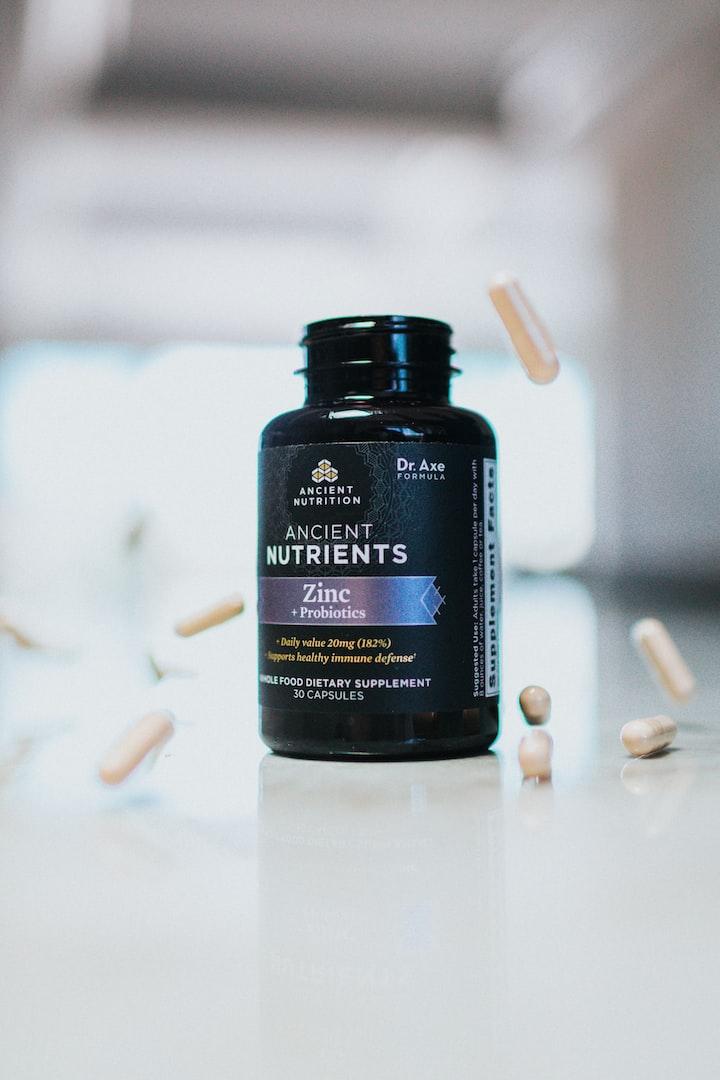Zinc is an essential mineral that is required for many biochemical processes in the body. It plays a role in DNA synthesis, cell growth and division, metabolism of carbohydrates and fats, and protein synthesis. Zinc also helps to protect the body against oxidative stress and free radicals.
While zinc is found in a variety of foods, it is not always easy to get enough from diet alone. This is why zinc supplements are often recommended for people who are at risk of zinc deficiency.
The signs and symptoms of zinc deficiency can be subtle and may take years to develop. The most common signs include:
1) Growth retardation: Zinc plays a vital role in growth and development. Zinc deficiency can lead to stunted growth in children and delayed sexual maturation in adolescents.
2) Skin problems: Zinc deficiency can cause a variety of skin problems including dryness, rashes, acne, eczema, and psoriasis.
3) Immune system dysfunction: Zinc is essential for proper immune function. Deficiency can lead to increased susceptibility to infection and slowed healing time from wounds or injuries.
4) Digestive problems: Gastrointestinal issues such as diarrhea, nausea, vomiting, and abdominal pain.
Changes in their nails
Zinc deficiency can cause changes in your nails. They may become thin and brittle, or develop white spots or stripes. Your nails may also curve inward or become ridged. If you have zinc deficiency, you may also experience hair loss, diarrhea, and a loss of taste and smell.
Diarrhoea
Zinc is an essential mineral that plays a role in many bodily functions. It helps the body to create new cells, repair DNA, and produce enzymes. Zinc also boosts immunity and helps the body to heal from wounds.
While zinc deficiency is not common in developed countries, it is estimated that about one-third of the world’s population does not get enough of this mineral in their diet. Zinc deficiency can lead to a number of health problems, including diarrhoea.
Diarrhoea caused by zinc deficiency is often characterised by watery and loose stools that are difficult to control. In severe cases, diarrhoea can lead to dehydration and even death. If you suspect that you or someone you know has zinc deficiency-related diarrhoea, it’s important to see a doctor right away for treatment.
More infections
The five signs of zinc deficiency are:
1. Increased susceptibility to infections: Zinc plays a role in immune function and helps the body fight off infection. Zinc deficiency can make you more susceptible to contracting infections such as the common cold or pneumonia.
2. Delayed wound healing: Zinc is required for proper wound healing. If you are deficient in zinc, your wounds may take longer to heal properly and may be more susceptible to infection.
3. Growth retardation in children: Children who do not get enough zinc in their diets may experience stunted growth and development due to inadequate zinc availability for growth hormone production and other key biochemical processes involved in growth and development.
4.. Hair loss: One of the first signs of zinc deficiency can be hair loss due to impaired protein synthesis necessary for healthy hair follicles. Skin changes: Dry skin, rashes, or acne can also be indicative of insufficient zinc status as this mineral is involved in maintaining healthy skin tissue..
Feeling irritable
Other symptoms of zinc deficiency include:
– Difficulty concentrating – Depression – Fatigue – Loss of appetite – Skin rashes or problems healing from cuts and scrapes
If you think you might be deficient in zinc, talk to your doctor. They can order a blood test to check your levels and make sure that there isn’t another underlying cause for your symptoms.
Loss of appetite
Zinc is an essential mineral that is required for the proper function of many enzymes in the body. It is involved in the synthesis of DNA and RNA, and it plays a role in cell growth and cell division. Zinc also helps to protect the body from free radical damage.
A zinc deficiency can lead to a number of health problems, including loss of appetite, weight loss, diarrhea, impotence, hair loss, eye problems, weakened immune system, and birth defects.
Eye problems
Zinc is an essential mineral that is required for many important functions in the body. It plays a role in cell growth and development, immune function, hormone production, and fertility. Zinc also helps to protect the body against oxidative stress and free radical damage.
Although zinc is found in a variety of foods, some people may be at risk for zinc deficiency due to poor absorption or dietary intake. Zinc deficiency can lead to a number of health problems including eye problems.
The five signs of zinc deficiency that can affect the eyes are: night blindness, dry eyes, blurred vision, decreased sense of taste and smell, and delayed wound healing. Night blindness is the inability to see in low light or darkness. Dry eyes are a condition where the eyes do not produce enough tears or the tears evaporate too quickly. Blurred vision can be caused by a number of factors including zinc deficiency. Decreased sense of taste and smell can also be caused by zinc deficiency as well as other factors such as vitamin deficiencies or head injuries. Delayed wound healing can be a sign of zinc deficiency or other underlying health conditions such as diabetes or poor circulation.
